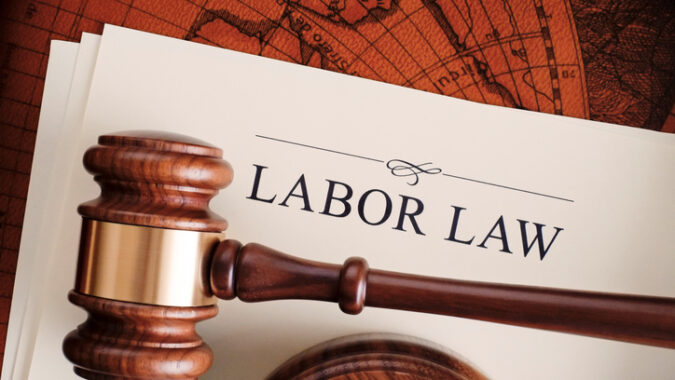NJBIA’s Employment and Labor Law Policy Committee recently held a virtual meeting to discuss current labor policy with guest speakers Senator Joseph Lagana (D-38) and Assistant Director of the New Jersey Office of Apprenticeship Nicholas Toth, followed by a policy update by the NJBIA Government Affairs team.
New Jersey has had an influx of federal dollars flow into the state to support economic recovery through federal funding sources such as the American Rescue Plan Act.
Sen. Lagana discussed how because the business community in New Jersey and the entire Northeast region are instrumental drivers of the nation’s economy and through the American Rescue Plan Act, the federal government is finally taking notice of and investing in our economy. He acknowledged that many of the funds have been received by the state, but much of the money is awaiting allocation and distribution.
Sen. Lagana, who serves as vice chairman of the Senate Labor Committee, stressed that one beneficial use of the ARPA funds would be to lessen the burden on the businesses community to replenish the Unemployment Insurance Trust fund as a majority of other states have done. NJBIA has been leading this advocacy charge on this matter on behalf of the business community.
Although the Legislature has adopted legislation to spread the UI tax increase over time, businesses are still burdened with increased costs that will total close to $1 billion.
As New Jersey businesses continue to face a labor shortage and struggle to find qualified candidates, workforce development is a critical aspect of our economic recovery. Apprenticeship programs are an integral tool to allow workers to gain hands-on experience in skilled trades and other industries.
The New Jersey Office of Apprenticeships is housed within the Department of Labor and Workforce Development and serves as a point of contact for employers and potential apprentices.
Toth discussed various programs offered through the Office of Apprenticeships. The office develops programs by working with employers to start or expand registered apprenticeships in sectors which are a part of the New Jersey Apprenticeship Network.
Through the Growing Apprenticeships in Nontraditional Sectors (GAINS) program, the Office of Apprenticeships works to create USDOL-approved registered apprenticeship programs in high-growth industries. According to Toth, the Office of Apprenticeships has worked to develop 559 new registered apprentice programs and it saw a 20% increase in statewide active registered apprentices since its inception in 2018.
The NJBIA Government Affairs team discussed several bills which are currently moving through the Legislature which will affect labor relations and increase costs for businesses.
NJBIA Chief Government Affairs Officer Chrissy Buteas explained that Bill A-4630 (Burzichelli/Madden) was conditionally vetoed by Gov. Phil Murphy. This legislation requires any new retail or distribution center projects in which the state has a priority interest to enter labor harmony agreements for their workforces for a period of no less than five years.
In his conditional veto, Gov. Murphy recommended that the minimum employee threshold be increased from 10 to 20 employees. This change did not address the concerns of the business community and NJBIA is urging the Legislature not to concur with the veto recommendations.
Additionally, NJBIA Director of Government Affairs Alexis Bailey explained that Bill S-4207 (Sweeney) which concerns apprenticeships for public works contracts passed the Senate Labor Committee. NJBIA is opposed to this bill because it would limit the number of contractors for public works that can meet the apprenticeship requirements, severely limit the ability of small business contractors to bid on public works contracts

